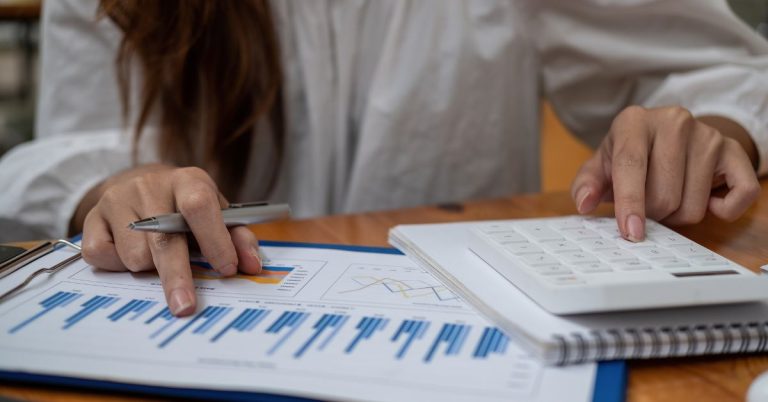The Allowable Expenses of Working from Home
Costs that qualify as allowed charges
The rules surrounding what you are allowed to claim as allowable expenses vary depending on whether you work in the UK or overseas. If you are working abroad, you might find it easier to use the allowances set out in HM Revenue & Customs’ International Allowances Guide. However, even if you live in the UK, there are still some allowances that you can claim against your taxable income.
If you are self-employed, you can deduct certain costs associated with running your business. For example, you can claim for advertising costs, rent, rates, insurance, utilities and subscriptions. You cannot claim for items such as furniture or computer equipment.
You must keep records showing how much you spent on each item. This includes invoices and receipts. You can claim up to £500 per month towards business costs.
Expenses eligible for capital allowances

Capital allowances are used to reduce taxable profits. They are based on what it costs you to acquire assets such as buildings and machinery. Capital allowances are normally claimed when you purchase items like computers, vehicles, office equipment etc. However, there are some exceptions to the rules. For instance, you don’t qualify for capital allowances if you use the money you spend on buying things to make a profit yourself. This is called trading within your ‘taxable turnover’ – the amount of income you earn over a set period. You can’t claim capital allowances if you’re making a loss while you’re using the asset.
If you use cash basis
Capital allowances are allowed if you operate under the cash method of accounting. This means that you don’t record expenses until you receive payment. You do not include income until it is received. If you use cash basis accounting, you cannot claim capital allowances.
Cash basis accounting does not mean you pay your bills in money. Instead, you keep track of how much money you spend each month, and you record those transactions as expenses. When you sell something, you record the sale price, minus what you paid for it. Income is calculated based on sales revenue.
All purchases must be recorded as expenses in the normal way.
If you use something for both business and personal reasons
The HMRC states that it does not allow businesses to claim travel expenses for personal purposes. However, there are some exceptions. If you use something for both personal and business purposes, you can still claim for the cost of the item. For example, if you use your mobile phone for both work and personal uses, you can claim for the cost of your monthly bill.
You must keep records of your usage of the item, such as receipts or invoices. You must also show that you used the item for both business and personal purposes.
For example, if you use a taxi for both business and personal journeys, you can claim for your taxi fare.
If you work from home
You might think it’s easy to deduct travel expenses, meals and entertainment while working from home. But there are some things you must do differently than if you worked outside the house.
For example, if you use your personal vehicle to commute to work, you cannot claim mileage deductions for trips to and from work. If you live within commuting distance of your place of employment, you can claim carpooling expenses. And you can deduct the cost of parking near your workplace.
But you still can deduct certain items related to your job. For example, you can deduct the cost associated with tools used to perform your job duties. These include computer software, office supplies, telephone equipment and furniture.
Simplified expenses
Using simplified expenses makes it easier for small businesses to keep track of their business costs. But there are two ways to calculate them:
1. Standard method – multiply the number hours worked each week by the hourly rate
2. Monthly/annual cost calculation – use the total number of days you worked per year
For example, if you work 10 hours a week and earn £10 an hour, you will spend around £100 per month. If you work 60 hours a week and earn the same amount, you will spend £600 per month.
The latter option is better because it takes into account the fact that some months are shorter than others. This way, you don’t end up paying more than necessary.
Frequently Asked Questions
How to determine permissible rental expenditures
When it comes to ensuring a fair amount of rent, you want to make sure that you are paying enough. This article explains how to calculate the amount of rent you can charge, including allowances for depreciation and capital gains tax.
If you have ever rented a property, then you know just how difficult it can be to come up with an accurate estimate of how much your property is worth. You might think that it is easy to work out how much your home is worth, but there are many factors that could affect the value of your property.
You need to consider things like the location, size, age and condition of your home, whether it is furnished or unfurnished, and even the number of bedrooms and bathrooms. All of these factors can influence the price of your home, so you need to find a method of working out how much your home costs per month.
The most common way to work out how much rent you can charge is to look at the amount of money you spend each month on running your business. You can add together all of the monthly bills that you incur and divide this total by the number of days worked each month. This gives you the amount of rent you should be charging.
However, there are some additional costs that you may need to factor into your calculations. These include things such as utilities, insurance, maintenance, repairs and taxes.
There are also ways to help reduce your cost of living while still making a profit. One option is to buy furniture for your home, rather than renting. Furniture can save you money over the long term because you don’t have to replace it every few months.
Another thing you can do is to sell items that you no longer use. By selling these items, you can increase the value of your home and therefore increase the amount of rent you receive.
How do I file a claim for business-related mobile phone calls?
If you’re claiming for business mobile telephone calls, there are three ways to go about it. You could make a claim against your corporation tax return; you could make a claim against a HMRC form called P11D; or you could make a claim directly against your mobile phone supplier. Let’s look at each option in turn.






